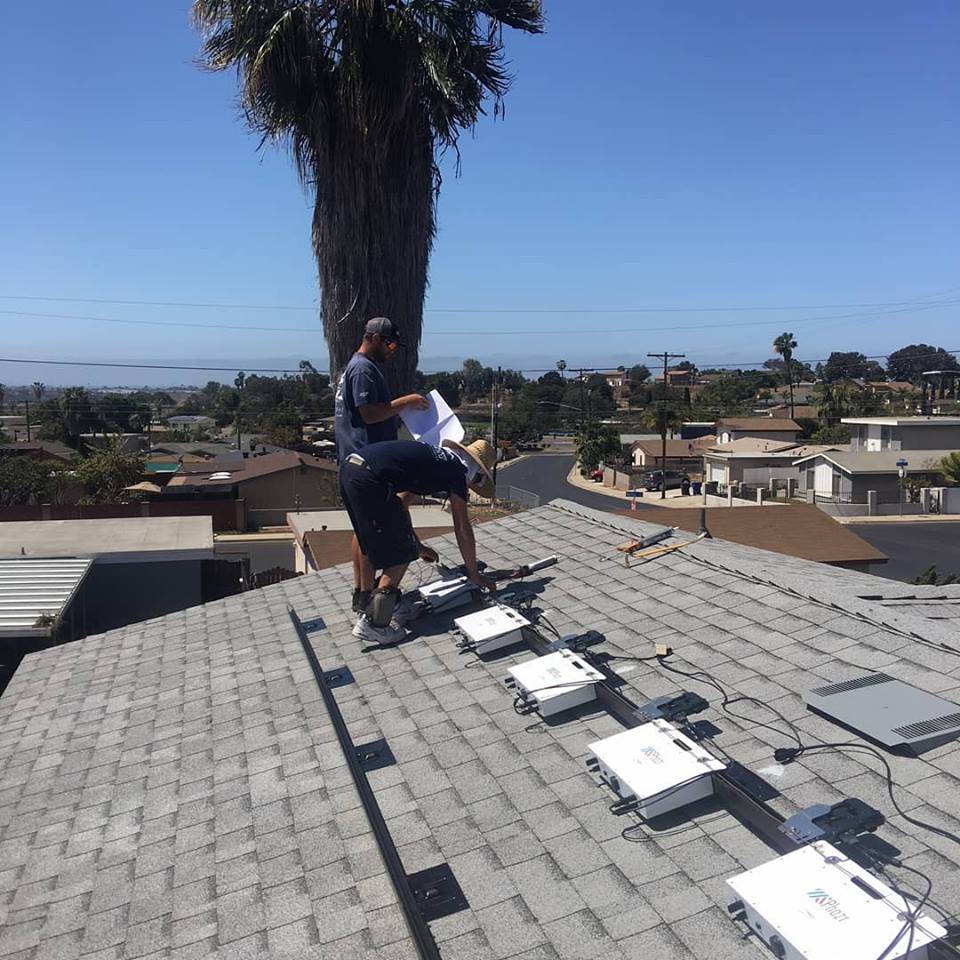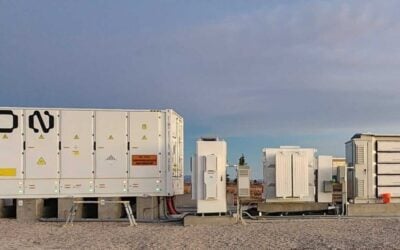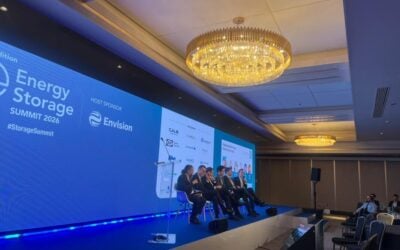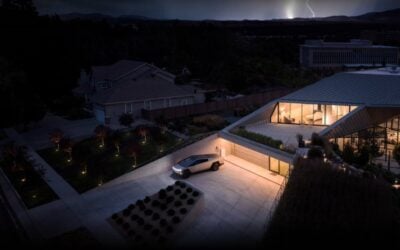
JLM Energy, a US maker of residential ’microstorage’ systems that pair with individual solar panels, is leaning on its US$25 million project finance fund to develop larger storage projects for commercial businesses.
The company launched Phazr, the panel-level energy storage devices that pair lithium batteries to PV systems to add up to five hours of storage, at the beginning of last year into residential markets in the US and elsewhere. JLM offers Phazr with 20-year warranties, which CEO Farid Dibachi told Energy-Storage.News was motivated by the fact that in his view, storage system warranties should match the length of PV panel warranties in order for customers to feel comfortable buying them.
Following that residential product launch, in September 2017 JLM also revealed it had raised US$25 million in project financing. While at the time Dibachi and others said the fund would be used to fuel a push into the commercial and industrial (C&I) market, it was thought that this would entail the introduction of Phazr into that market segment also. However, three projects in California announced by JLM Energy this week instead all utilise Gridz, JLM’s ‘centralised’ energy storage units housed in cabinets or containers.
As with other C&I providers, JLM is offering customers a long-term value proposition based on providing a service. JLM guarantees monthly savings on electricity costs for the customers, who enter a 20-year contract with no money down.
Try Premium for just $1
- Full premium access for the first month at only $1
- Converts to an annual rate after 30 days unless cancelled
- Cancel anytime during the trial period
Premium Benefits
- Expert industry analysis and interviews
- Digital access to PV Tech Power journal
- Exclusive event discounts
Or get the full Premium subscription right away
Or continue reading this article for free
As has often been noted on this website, businesses in the US are levied monthly charges for their electricity based on their use of grid power during peak times, known as demand charges. Storing energy from off-peak times or charging directly from onsite solar in a battery and then discharging it during the peak times can mitigate the financial and grid impact of a business’ electricity use.
The more successful participants in terms of market share in the C&I, behind-the-meter segment of energy storage in the US have recognised that the high capital cost of batteries could be a significant barrier for business owners and instead begun offering no-money-down or monthly subscription payment deals, the so-called ‘energy storage as-a-service’ business model.
“Shared savings is a risk-free way to reduce burdensome utility bills,” JLM enterprise sales VP Nate Newsome said.
“Commercial entities that spend three percent or more of their monthly budget on electricity and/or experience 40-50% demand charges typically are a good fit for energy storage.”
JLM’s project finance fund was arranged by GoldenSet Capital Partners, advising North Sky Capital Alliance Fund II, which North Sky Capital set up to develop renewable energy infrastructure projects in 2015.
Postcards, metalworks and electro galvanisation
JLM is delivering a 750kW / 1500kWh Gridz energy storage system for Thermal-Vac Technology, a metalworks company in Orange County, California. The company is in the service territory of investor-owned utility (IOU) Southern California Edison, as is Continuous Coating Corporation, an electro-zinc galvanisation and coating company, which has signed a deal with JLM for a 180kW / 360kWh Gridz JLM storage system.
The third and final project announced by JLM is for Modern Postcard, which will get a 420kW / 840kWh Gridz system. Modern Postcards is in the service territory for San Diego Gas & Electric, another California IOU.
JLM’s systems use lithium iron phosphate batteries and are centred around the company’s software Measurz, which makes energy efficiency optimisation adjustments automatically based on energy consumption trends. The company will own, operate and maintain the units over their lifetime.





